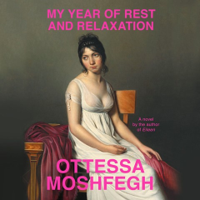The Narrator tipo de personalidade mbti
Personalidade
"Que tipo de personalidade é The Narrator? The Narrator é um tipo de personalidade ISTP em mbti, 9w1 - sp/sx - 954 em enneagram, RLUEN em Big 5, SLI em sociônicos."
Her dominant Ti is quite apparent. She makes her decisions based on internal logic rather than anything else. She is naturally focused on solving problems in her way of thinking (honestly, as the book progresses, we find out that "fixing herself/her brain" is one of her main goals behind her sleeping plan, so...). She is inclined to test the social boundaries from time to time and she is so familiar with analyzing things from a detached perspective that she can't grasp why other people don't do it so naturally, as she, on the other hand, struggles with understand the emotional aspects of things and is not familiar with the fact that decision can be taken from an emotional manner (these things can be tested as two of the main problems behind her friendship with Reva and why they can't seem to connect at all sometimes). As for her auxiliar function, Se would be the best option. She relies on her senses to take in information much rather than on her intuition. She does not spend time forming connections and theories as she creates. In fact, she prefers to deal with what is concrete much rather than something purely conceptualized. Her opting for sleeping during a whole year does not indicate high Ne, and I can see why so many people would think that once there's a misconception of Ne equating "dreamy" characteristics at all costs, but there is nothing actually dreamy about The Narrator's decision. In fact, I believe that can be used to back up an argument for her really unhealthy Tertiary Ni instead. As it is stated on the website "Practical Typing" [I'll link the website on the replies below], the danger of an unbalanced Tertiary Ni function resides on "the noncommittal nature of this combination can lead to apathy when it comes to future planning. This leads to no real or meaningful progress being made. In other words they won’t see a point in planning far enough in advance to be adequately prepared for the future." We can see this very clearly with this character. At her lowest (and even before her "year of rest and relaxation", if we pay enough attention), when she's so far deep within her internal world she can't be able to grasp reality anymore, she is skeptical and self destructive, obsessing about past mistakes while ignoring the current aspects of her life, avoiding the need for change. She believes in random, mystical signs and takes on chasing alternative lifestyles that can be antisocial and unproductive (hello? that whole thing with the "artist"? the entire book itself??). She feels like nothing or anyone can match up to her expectations but doesn't seem to realize that her expectations are so high up they can become unreal. Lastly, there's the Inferior Fe. When losing the healthy functioning of her dominant function, The Narrator starts to feel as if she can't think straight, feeling mentally clouded and overwhelmed by outside influences and external demands. Even though she doesn't want to admit it, she becomes hypersensitive about other people's opinions of her, at the same time feeling alienated of others. I can provide more examples of her Tert Ni- Inf Fe, but so far, this is what I've come up with.





















